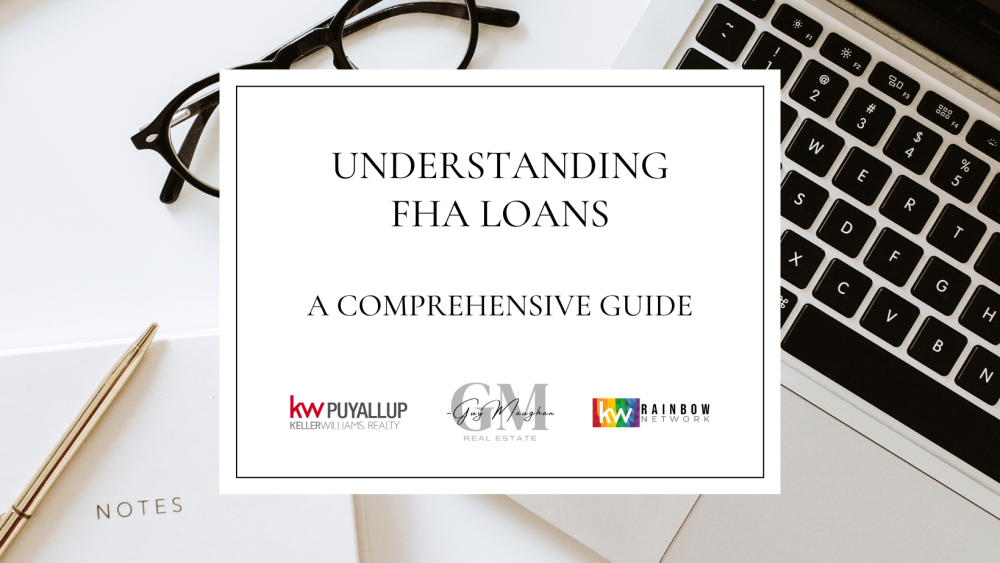When it comes to financing a home purchase, prospective homeowners often find themselves navigating through a myriad of loan options. One such option that stands out for its accessibility and benefits is the FHA loan. The Federal Housing Administration (FHA) plays a crucial role in making homeownership more attainable for a broader spectrum of individuals. In this comprehensive guide, we’ll delve into what FHA loans are, how they work, and why they might be the right choice for you.
What are FHA Loans?
FHA loans are mortgage loans backed by the Federal Housing Administration, a part of the U.S. Department of Housing and Urban Development (HUD). These loans are designed to assist individuals with lower credit scores and moderate incomes to become homeowners by providing more lenient qualification criteria and lower down payment requirements compared to traditional mortgages.
Key Features of FHA Loans:
1. Low Down Payment:
One of the standout features of FHA loans is the low down payment requirement. While conventional loans often require a down payment of at least 20%, FHA loans typically only ask for a minimum down payment of 3.5%. This lower upfront cost makes homeownership more feasible for those who may not have substantial savings.
2. Flexible Credit Requirements:
FHA loans are known for being more forgiving when it comes to credit scores. While conventional loans may require higher credit scores, FHA loans are accessible to individuals with credit scores as low as 580. This flexibility opens the doors to homeownership for many who may have faced challenges in the past.
3. Assumable Mortgages:
FHA loans are assumable, meaning that if you decide to sell your home, the buyer can take over your existing FHA loan. This feature can be an attractive selling point and may make your property more appealing to potential buyers.
4. Closing Cost Assistance:
FHA loans allow sellers to contribute to the buyer’s closing costs, which can alleviate some financial burden during the homebuying process. This is a unique benefit that can make a significant difference, especially for first-time homebuyers.
How FHA Loans Work:
1. Application and Approval Process:
The process of obtaining an FHA loan begins with the application. Borrowers can apply through FHA-approved lenders, such as banks and mortgage companies. The lender reviews the applicant’s financial history, credit score, and income to determine eligibility.
2. FHA Appraisal:
Once the borrower is pre-approved, an FHA-approved appraiser assesses the property’s value to ensure it meets the FHA’s minimum property standards. This step is crucial to protect both the borrower and the FHA from investing in properties with significant issues.
3. Mortgage Insurance Premiums (MIP):
FHA loans require mortgage insurance premiums (MIP) to protect the lender in case the borrower defaults on the loan. MIP is paid both upfront at closing and as an ongoing monthly premium. While this adds an additional cost, it allows borrowers to qualify for loans with lower down payments and more lenient credit requirements.
4. Loan Limits:
FHA sets limits on the amount you can borrow, which vary by location. These limits consider the median home prices in each area and are updated annually. Borrowers should be aware of these limits when considering an FHA loan for their home purchase.
Why Choose an FHA Loan?
1. Accessibility:
FHA loans are a lifeline for those who may not meet the stringent requirements of conventional loans. The lower down payment and flexible credit criteria make homeownership a reality for a more diverse range of individuals and families.
2. First-Time Homebuyers:
FHA loans are particularly popular among first-time homebuyers who may not have a large down payment saved up. The lower upfront costs and additional financial assistance options make the homebuying process less daunting for newcomers to the real estate market.
3. Refinancing Opportunities:
FHA loans offer options for refinancing, allowing borrowers to take advantage of lower interest rates or change the terms of their mortgage. This flexibility can be beneficial for homeowners looking to improve their financial situation over time.
FHA loans play a crucial role in promoting homeownership by providing accessible financing options for a broader segment of the population. The low down payment requirements, flexible credit criteria, and additional benefits make FHA loans an attractive option for those who may face barriers in securing traditional mortgages. As you embark on your homeownership journey, consider exploring the possibilities that FHA loans offer and how they can pave the way to your dream home.

